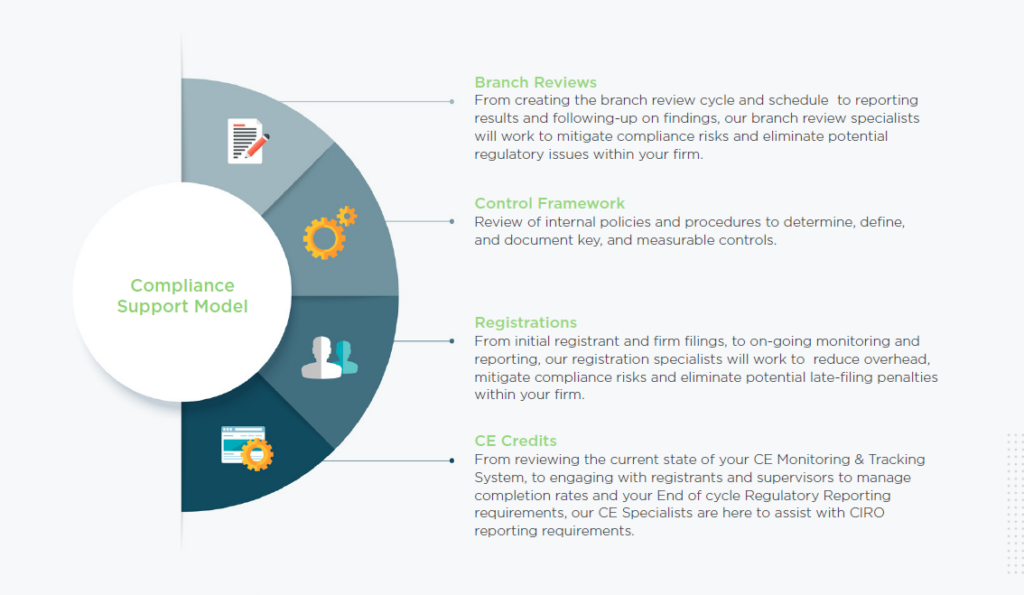This company has no active jobs
What is Payroll Outsourcing?
What is payroll outsourcing?
Payroll outsourcing is working with a third-party service provider to handle payroll-related jobs, including determining and verifying earnings and incomes, deducting and depositing funds for tax withholdings, guaranteeing pre- and post-tax benefit deductions are processed, printing incomes, setting up direct deposits, and preparing payroll reports and journals for basic ledger entries.

An outsourced payroll company will require access to your organization bank account and worker time tracking system. This requires trust in between the business contracting the payroll service and the service itself. A lawfully binding service agreement describing the payroll outsourcing business's terms, conditions, and expectations strengthens that trust.
Companies that employ a payroll contracting out service provider may also want to contract out PEO or HR services. Search for a "full-service payroll company" to handle that. Their services usually consist of managing staff member benefits, tax filing, and human resource functions like onboarding and examining medical insurance service providers. Pricing will be based upon the variety of workers.
Why should a service outsource payroll?
There are a number of reasons that a business need to consider outsourcing payroll. Two of them are tax compliance and accurate tax reporting. A payroll professional is trained in both functions. A third-party company will have a payroll group of professionals dealing with your account. They'll handle the payroll duties, tax withholdings, and staff member benefits.
Outsourcing saves time
Payroll processing is lengthy. Payroll administrators track and implement benefit deductions, wage garnishments, paid time off, overdue time off, taxes, and payroll mistakes. They likewise require to be aware of data security problems that might develop throughout the onboarding when they collect employee data. A payroll business can manage all that for you.
Outsourcing can lower expenses
The time staff members invest processing payroll in-house and the income of the payroll supervisor are costs. A little organization can invest a substantial portion of its earnings on those expenses. It's typically more affordable to work with a payroll processing service. Prices for some payroll services are as low as $40 per month to manage standard payroll functions.
Outsourcing makes sure tax accuracy
Small companies can not afford errors in payroll taxes. The penalties and costs assessed by state and IRS tax auditors can be considerable. A recognized payroll provider will ensure that the ideal amount of taxes will be withheld and transferred on time. They presume the obligation and liability for that, providing your company peace of mind.
Outsourcing supplies data security

Payroll business employ innovative security steps to protect employee info. That includes preserving confidentiality on concerns like wage garnishment, payroll mistakes, and business tax filing. Companies with a self-service payroll system or on-site advantages manager do not generally carry out the same security protocols.
Outsourcing removes software application issues

The costs of setting up, preserving, and fixing payroll software application collect rapidly when you have a big workforce. Hiring the right payroll business gets rid of that problem. They have their own software, and it's included in what you pay them. That can simplify accounting processes like expense management and improve your capital.
Outsourcing features a payroll assistance team
Companies that do payroll individually generally have one individual reacting to support issues. Outsourcing brings in a support group that can handle concerns about direct deposit, advantage reductions, tax liability, and more. This also falls under "cost conserving" since someone who would otherwise be managing service problems can be redeployed somewhere else.
What is payroll co-sourcing?
Another option for small companies that require help is payroll co-sourcing. This is a hybrid design in which payroll tasks are split between the service and the third-party payroll company. For example, the payroll business handles jobs like data entry, tax calculations, and releasing paychecks or direct deposits. The primary service preserves control over the movement of payroll funds and making tax withholding deposits.
Special factors to consider for global payroll outsourcing
Most small organization owners in the United States don't require to handle worldwide payrolls. If you broaden your services or hire specialized employees outside the country, that might alter. International payroll solutions consist of multi-currency capability, compliance for the countries you're doing service in, and international tax rates and tables.
The payroll requirements of employees in other nations vary from those in the United States. For instance, 35 hours is considered a full-time work in France. Your company would require to pay overtime for anything over that. You don't require to pay social security tax. You may, however, require to pay US business earnings tax.
Benefits administration for an international payroll is different likewise. HR groups with business doing internal payroll will be responsible for examining medical insurance requirements and optimal retirement contribution rules in the nations where you have employees. Business needs to do that every pay period if you're actively hiring. That's a lot to keep an eye on.
How payroll outsourcing works
Outsourcing includes moving payroll data. Automation simplifies that, so you'll want to find a payroll service with great innovation. Best practices suggest opening a separate company specifically for payroll. Many business set up sub-accounts of their primary checking account to simplify the transfer of funds to cover payroll checks and direct deposits.
Planning to outsource payroll
The next action is to choose what degree of outsourcing is appropriate. Turning "all things payroll" over to a third-party company may not be the most cost-effective option. Some businesses choose to co-source payroll, keeping some of the payroll tasks internal. That gives the service control over the process without handling a heavy work.
Picking a payroll contracting out partner
A lot goes into picking the ideal payroll outsourcing partner. Working with someone you trust is necessary, so find a payroll business with an excellent credibility. If you're co-sourcing, you'll require a partner happy to share the work. Using payroll software application is likewise an option. Many payroll software application service providers have live support groups.
Setting up and running payroll
Decide how often you wish to run payroll. Some companies do it weekly, while others prefer biweekly or monthly. Once you select a payroll cycle, run a sample check with a pay stub to make sure the system works correctly. Your outsourced payroll company will likely do that anyway. If not, demand it so you can see how the process works.
Facilitating staff member self-service

Outsourced payroll business typically provide online portals where staff members can view their net earnings, benefits, and tax reductions. Directing them there instead of to a live support center is an excellent way to decrease corporate spending. It may take some time for workers to adopt this method. Stay consistent with your messaging until it takes hold.
Payroll tax and compliance issues
Employers are eventually responsible for paying payroll taxes, even if they contract out payroll to a third-party provider. The payroll company can improve your operations to make them more cost-effective, and it can handle the duty of tax withholdings and deposits. However, any IRS penalties for errors will be levied versus the main business.
IRS correspondence is always sent out to the primary organization, not the third-party provider. They do not send a copy to your payroll business. You can alter your address to the payroll business, but the IRS does not recommend that. If mail is mishandled or accountable celebrations are not in the office, your firm might be on the hook for their mismanagement.
Federal tax deposits need to be made through electronic funds transfer (EFT) to abide by IRS policies on payroll. The IRS has a system called the Electronic Federal Tax Payment System (EFTPS) to facilitate that. Businesses are assigned a company identification number (EIN) that requires to be supplied to the payroll business if you're going to outsource.
Please speak with a tax professional to supply further guidance.
Best practices for outsourcing payroll
Relinquishing control over your payroll is a big deal. Following these finest practices will assist make the look for a supplier and the transition smoother. It's likewise advised that you don't do this alone. Form a team at your business to examine payroll outsourcing, then take a moment to review these and the "Frequently Asked Questions" section listed below.
Choose a respectable payroll provider
Reputation should be crucial in your search for a third-party payroll company. This is not a service you wish to shop by rate. Try to find online reviews. Ask other company owner who they are using. You can also speak to your bank or examine the Integrations Page on our site. Rho links to accounting, ERP, and human resources business with payroll partners.
Research policies and tax obligations before outsourcing
Your company is ultimately accountable for worker tax withholdings and payroll tax deposits to regional, state, and federal revenue departments. You can outsource those responsibilities, however you'll pay the rate for any errors. Read up on this and other regulations that affect how you pay your employees. Make sure you understand what your tax commitments are.
Get stakeholder buy-in
Your workers are your stakeholders. Consulting them about relocating to an outside payroll company will make the transition simpler for you and your management team. Many employers start the outsourcing procedure by conversing with their employees about what they want from a payroll business. This can likewise help you build an advantage bundle.
Review software options
One alternative to outsourcing is utilizing payroll software that automates much of the payroll processing. While this may not completely complimentary you from handling payroll issues, it could simplify preparing and issuing incomes and direct deposits. Review software application alternatives before choosing an outside business to handle payroll and benefits.
Build redundancies for accuracy
Running a payroll in parallel with the payroll being run by an outsourced service provider produces a redundancy to guarantee precision. Think about it as a check and balance system that protects you if the payroll business goes down for any factor. When things run smoothly, you will not need to process checks. When they don't, you'll have the capability to do so.
Payroll outsourcing FAQs
How does payroll outsourcing work?
Payroll outsourcing is transferring payroll tasks and duties to a third-party payroll supplier. Depending upon the contract between the main company and the payroll provider, the provider can be responsible for all or simply some of the payroll tasks. Examples of payroll jobs are validating earnings, subtracting and transferring payroll taxes, and printing incomes.
Is payroll contracting out an excellent concept?
Companies that contract out payroll can reduce the expenses of managing and delivering staff member payment. Some outsourced payroll companies likewise provide personnels, which can improve business operations. Those are both great ideas, however outsourcing will boil down to your business needs. It's a great idea if it enhances your bottom line.
Who are some typical payroll contracting out partners?
Gusto, Paychex, and ADP are three of the most widely known payroll companies. QuickBooks, a popular accounting platform for small companies, also has a payroll service. If you work globally and need several currencies and international compliance, check out Rippling Global Payroll. For human resources, take a free demo of BambooHR.
Can I do payroll myself?
Yes, you can do payroll yourself. However, if you desire to do it precisely, you'll require the best payroll software application. Doing it without software application leaves excessive room for mistake.
When does it make sense for a company to start payroll outsourcing?
Companies can outsource their payroll at any time. It's usually a good idea to begin pricing payroll services when you get near 10 employees. Evaluate the expense and the time it takes to process payroll weekly. You'll understand when it's time to make a relocation.

Conclusion: Simplify payroll with Rho and Gusto
Outsourcing payroll to another company can be an excellent move for great deals of services. But it is very important to thoroughly research the outsourcing process, comprehend your tax obligations, and fully vet any business you're thinking about as a third-party payroll processor.
Once you do select one, Rho has direct combinations with among the most popular choices on the marketplace today: Gusto. Through this direct combination, groups on Gusto can ready up rapidly with Rho and start running payroll more efficiently. With Gusto, groups can anticipate not only improved payroll processes, but HR, too. By removing the friction from these vital work streams, groups can concentrate on other aspects of their business, all while staying a certified, efficient, and trustworthy.
Discover more about Rho's integrations today.
Any third-party links/references are provided for informative purposes just. The third-party sites and content are not backed or managed by Rho.

Rho is a fintech company, not a bank. Checking and card services offered by Webster Bank, N.A., member FDIC; cost savings account services provided by American Deposit Management Co. and its partner banks.
Note: This material is for informational functions only. It does not necessarily reflect the views of Rho and must not be construed as legal, tax, advantages, monetary, accounting, or other advice. If you need particular recommendations for your organization, please consult with an expert, as rules and guidelines change routinely.


